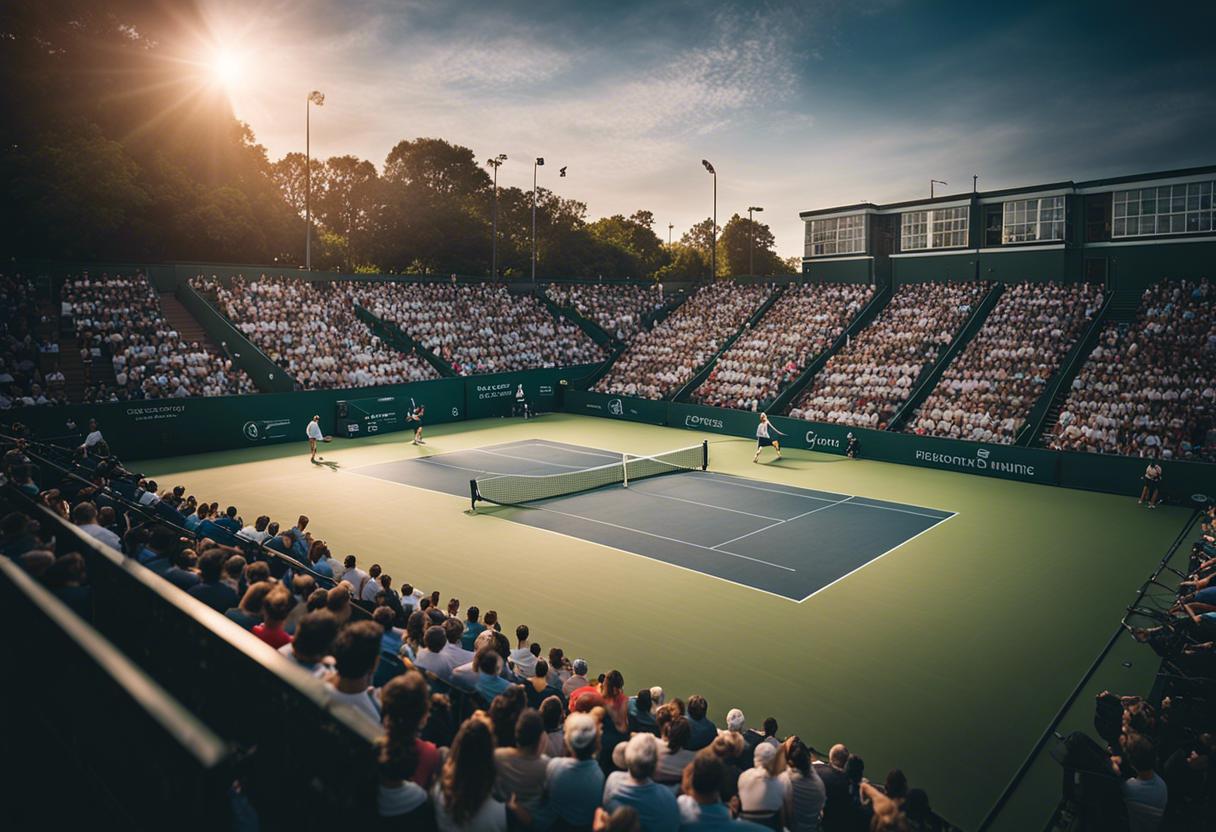In the week’s opening, Iga Świątek displayed exceptional determination, surviving a fierce challenge from Naomi Osaka in the second-round game and making a remarkable comeback when she was hanging by a thread. Her highly efficient performance resumed on Sunday, brutally defeating Anastasia Potapova 6-0, 6-0, thereby securing a spot in the French Open quarter-finals once again.
Although decisive scores might imply one-sided play, the reality often highlights high levels of competition. Often, matches can be quite close and the upper-hand player simply dominates on the decisive points.
But this wasn’t the case here. In a fairly brief 40-minute match, Świątek dealt a crushing defeat to the female player ranked 41st globally. Potapova managed to scoop up just 10 points in what was Świątek’s shortest completed match in her career and did not compete in a deuce game; her best effort was to make it 30-30 in the second game. Świątek emerging triumphant was about as clear-cut as a victory gets to at grand slam level.
Describing the feeling of being in control, Świątek referred to it as ‘comfortable’. She explained that when you’re in this zone, the best approach is to ‘go with it’ and stick to what’s working, because there’s no need to change anything. Her secret, she revealed, was keeping her focus on the forthcoming point and not dwelling on what had transpired. She attributes this strategy to her efficiency.
For four years in a row, Świątek has subjected her opponents to double bagel scores during the clay season, and this is the second time she’s done so at Roland Garros. Players now know to begin warming up early if they’re playing after Świątek, understanding her reputation for swiftly dismantling opponents.
Coco Gauff, who followed Świątek onto Court Philippe-Chatrier, admitted, “Usually if you’re after her, you know it’s probably going to be a quick match.” Gauff had expected the game to last at least an hour, and hadn’t predicted a mere 40-minute game. Nonetheless, it didn’t notably affect her because they had prepared for such a possibility.
Continuing her pursuit for her third consecutive French Open crown, Świątek successfully advanced to the quarter-finals, joined by the top eight seeds of the top half. Her next contest will be against Wimbledon winner and fifth seed Markéta Vondroušová, who triumphed over Olga Danilović with a scoreline of 6-4, 6-2. Gauff, the tournament’s third seed, achieved a comfortable victory over Elisabetta Cocciaretto, 6-1, 6-2, setting up a match with the revitalised eighth seed, Ons Jabeur, following her win against Clara Tauson, 6-4, 6-4.
In the men’s bracket, third seed Carlos Alcaraz confidently progressed into the quarter-finals, defeating Félix Auger-Aliassime, the 21st seed, with a thrilling 6-3, 6-3, 6-1 victory. He is now set to contest ninth seed Stefanos Tsitsipas, who displayed considerable mental resilience by overcoming a challenge from Matteo Arnaldi, with a score of 3-6, 7-6 (4), 6-2, 6-2. Arnaldi was serving for a two-set lead at 5-4 in the second set when Tsitsipas mounted a comeback and established dominance.
A formidable rival awaits Tsitsipas, who has yet to find a way to outplay Alcaraz in their past encounters. The Spaniard maintains an unbroken 5-0 record against the Greek, frequently deploying successful drop shots. After his fourth-round success, Alcaraz stated his awareness of how to defeat Tsitsipas.
“We’ve played a few games, and I’ve come out on top in every one,” he claimed. “That was the message I intended to send when I said I possessed the key to defeating him. It doesn’t signify I can afford to play less than my best. I realise Stefanos is enduring great form, but I understand the tactical strategy needed to win the match, which I obviously won’t reveal; I comprehend what’s required.”
Whilst the majority of leading male tennis players typically shun the doubles on account of the best-of-five-sets singles format, Tsitsipas has bucked the trend by dedicating himself to pursue the triple crown in Paris this week. Besides engaging in the doubles section with Petros, his brother who specialises in doubles, Tsitsipas has also registered for the mixed doubles category with his partner, Paula Badosa.
Responding to queries as to his decision, Tsitsipas explained that he isn’t following others who refrain from participating in the doubles and mixed doubles. After giving it due contemplation, he concluded that at this juncture of his life, he derives tremendous joy and satisfaction from playing the game of tennis. While he cherishes the opportunity to spend quality time with loved ones, he is also keen on maintaining his professional engagement and dedication. – Guardian.

